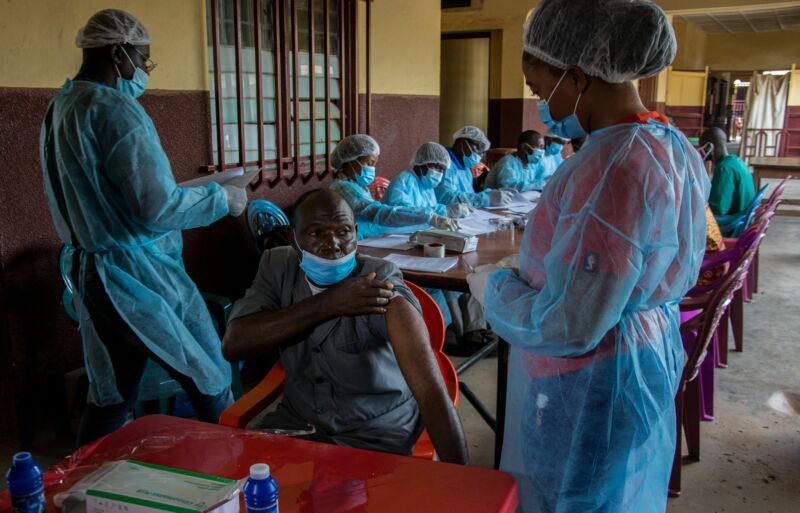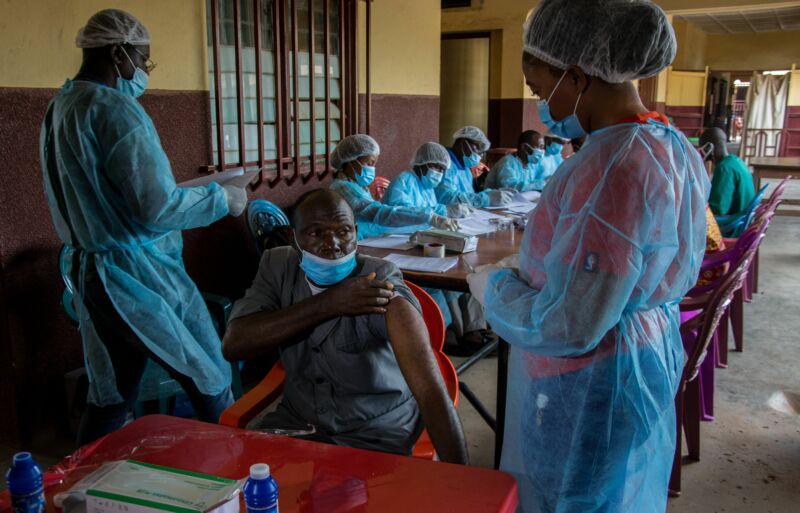
Enlarge / A staff member of the N’zerekore hospital lifts his shirt sleeve as he prepares to get his anti-ebola vaccination in N’zerekore on February 24, 2021. Nzerekore Hospital was where the first cases of Ebola were found at the end of January 2021. (credit: Getty | Carol Valade)
The Ebola viruses behind a new outbreak in Guinea are stunningly similar to viruses identified during the massive West Africa outbreak that spanned 2013 to 2016, according to a new genetic analysis. The finding suggests that virus may have silently persisted in a survivor for at least five years and that the current outbreak was sparked by that unlucky person, rather than a spillover from an animal reservoir.
In the genetic analysis posted online Friday, a group of international researchers report that Ebola viruses collected from the current outbreak in Guinea have only a dozen or so genetic differences from Ebola variants collected from the same area of Guinea in 2014. Based on what researchers know about the pace at which Ebola collects such genetic substitutions—its evolutionary rate—that number of accumulated differences should have totaled over 110 in that timespan, not 12.
“This number of substitutions is far less than what would be expected during sustained human-to-human transmission,” they researchers write in their analysis. Instead, they note such a sluggish evolutionary rate is a “hallmark of persistent infections.”





